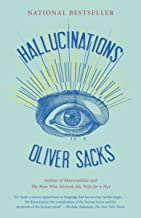Hallucinations
Resources for Patients and Caregivers
Hallucinations are where someone sees, hears, smells, tastes or feels things that don’t exist outside their mind. They’re common in people with schizophrenia, and are usually experienced as hearing voices. Hallucinations can be frightening, but there’s usually an identifiable cause.
Cluster Number:
Wiki Number: 22-Hallucinations
Diagnosis:
US Patients: 10-15% over a lifetime of even healthy individuals
World Patients:
Sex Ratio:
Age Onset:
Brain Area:
Symptoms: perceptions of external stimuli which do not exist
Progression: can occur through any of the senses
Causes: occur frequently in schizophrenia, parkinson’s disease. More than five cups of coffee.
Medications: antipsychotics
Therapies:
Youtube Video: What Hallucination Reveals About Our Minds
Amazon or Library Book: Hallucinations
Click the book to link or buy from Amazon.
Support Group: nami.org 8009506-6264
(National Alliance on Mental Illness)
[feedzy-rss feeds=”https://pubmed.ncbi.nlm.nih.gov/rss/search/1DmWOa7abSbeDLYj53Ja4AGFJtJGuaNeXtpxNGaF4gW3V-cERp/?limit=15&utm_campaign=pubmed-2&fc=20211201124145″ max=”4″ feed_title=”no” meta=”author, date” columns=”3″ thumb=”no” http=”default” template=”style2″]

